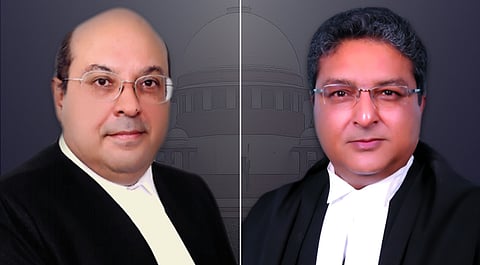
- News
- Columns
- Interviews
- Law Firms
- Apprentice Lawyer
- Legal Jobs
- हिंदी
- ಕನ್ನಡ

The Supreme Court recently clarified that under the prevailing law, the 120-day time limit for filing the written statement in commercial suits is mandatory, leaving no room for courts to exercise their discretion to relax the same.